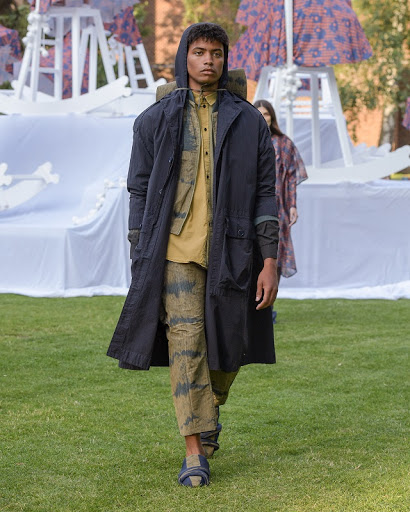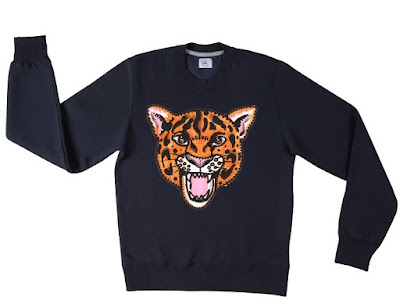 |
Photo from Hugo Boss/facebook: Take it easy: elevating your dressed-down style,
with Bettina Looney, James Kagonge, and Tommy Marr #ThisIsBOSS |
Hugo Boss’ current dress-down style reflects its new work model of work-life split between office and home. The brand is one of the first major fashion companies to ask employees to work from the office from Tuesdays to Thursdays even after the Covid-19 crisis, reports FashionUnited. The “Threedom of Work” work model will be implemented from October, initially applicable to the 3,200 employees in the brand’s native Germany whose jobs do not require physical attendance at the workplace. Hugo Boss will certainly not be the last in the fashion industry to adopt new work arrangements.
Meanwhile the UK government’s scheme of “Eat Out to Help Out” seems to have brought vibrant business to eateries around the country, even though the British high street continues to suffer from lack of shoppers as more retailers and chain stores are reporting closures and job cuts on a scale unseen since the financial crisis of 2008.
London seems to be struggling to get back to pre-pandemic normal for lack of high-spending tourists and workers still opting to work from home rather than heading back to the office in the Capital, ahead of the furlough scheme ending. Chief executive Helen Brocklebank of Trade association Walpole, which counts Boodles, Burberry and Harrods as members, said in a letter to culture secretary Oliver Dowden, the pandemic has disproportionally affected central London, which is deemed as the shop window of British luxury for UK and international visitors. London-based luxury businesses are reporting that trade is currently running at 5% to 10% of normal.
Perhaps a new shop by the British iconic rock group The Rolling Stones is one way of luring shoppers back to the capital, at least for fans of the band and music pundits.
The Rolling Stones are to open their first flagship store, ‘RS No 9' on London’s Carnaby Street in September. The new store is created in partnership with Bravado, Universal Music Group’s merchandise and brand management company.
The Rolling Stones said in a statement: “Soho has always encapsulated Rock ’n’ Roll so Carnaby Street was the perfect spot for our own store. We are confident this exciting project that our friends at Bravado have created will be an unrivalled experience for everyone to come to London and enjoy.”
Reportedly the new store will have a shop fit that follows the band's colours of red and black, alongside glass floors featuring lyrics, and fitting rooms adorned with iconic album artwork.
It will allow fans to immerse themselves into the world of the band and will feature an extensive range of official merchandise along with new clothing and accessories including exclusive designer collaborations and one-of-a-kind pieces only available in store.
The collections will include new fashion and merchandise under the ‘RS No. 9 Carnaby’ brand, catering for “fans of all ages,” including men’s, women’s and children’s fashion and accessories, along with raincoats and hats from premium Swedish raincoat brand Stutterheim, chairs and scarves from The Soloist, and a special glassware collection developed with Baccarat engraved with the Rolling Stones tongue.
The store will also introduce ‘Stones Red,’ the official colour from Pantone which is established from the first use of the band’s iconic logo. A collection celebrating the Rolling Stones official Pantone colour will also launch with the store.
Elsewhere in the UK, industry watchers also point out that the pandemic and the damage it has done has accelerated retail trends that were already shaping business pre-pandemic.
UK supermarket Waitrose boss James Bailey has warned that the shift to shopping online is irreversible, particularly in the grocery sector. It comes as the supermarket revealed stats - compiled for a report called How Britain Shops Online: Food and Drink Edition - showing 77% of customers now do at least some of their grocery shopping online, compared with 61% the year before.
Bailey added: "The growth curve - representing the uplift in customer demand - has been steep and rapid, challenging all retailers’ resources. Businesses have been forced to speedily face into the ascent and scale up their operations or face a slippery slide downwards. Because online shopping quickly becomes habitual - these changes are unlikely to reverse."
Bailey said: “Even before the Covid-19 pandemic, there are few retailers that wouldn’t have predicted the continued growth of e-commerce relative to physical shops.”

















































